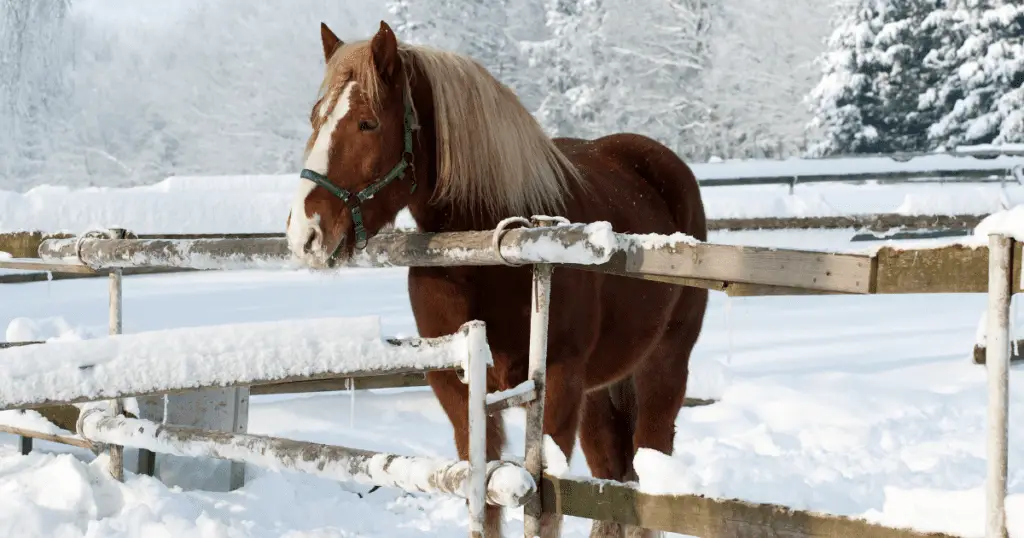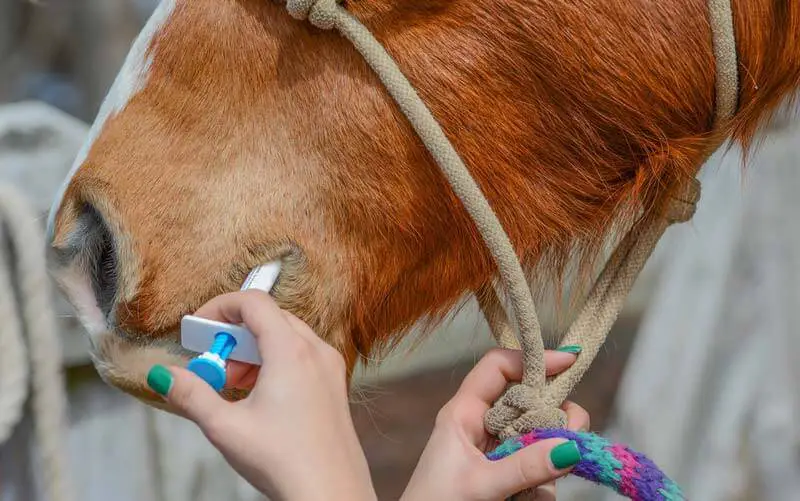With sensible management and sound nutrition, you can help your golden oldie weather the Winter months ahead. In this article, we discuss Winter Care for Senior Horses and how you can support your senior horse in a colder climate.

Winter Care for Senior Horses
Autumn Health Check
While veterinary advances are improving the lives of senior horses, many common challenges of aging are aggravated during Winter. For your senior horse, difficulties maintaining weight, mobility, and immunity may become compromised without proper care.
An annual Autumn health check is imperative for senior horses. In Autumn, your senior horse should receive a visit from your veterinarian to ensure they’re prepared for the rigors of Winter. This annual Autumn health check will assess the:
- Body condition
- Nutrition and diet
- Overall health
Body Condition
Ideally, diet changes should begin in Autumn to ensure your senior horse enters Winter in good body condition. A body condition score of 3/5 is recommended. At this weight range, fat is evenly distributed over the body, but the horse isn’t carrying excessive weight.
A physical and visual assessment, with the support of your veterinarian, will help you determine your senior horse’s body condition score. The ribs should be easily felt, but not visible, the withers rounded, the back level and the tail head slightly spongy.
Nutrition and Diet
Any senior horse that is currently overweight or underweight will require changes to their feeding regime before Winter. Both weight issues are detrimental to a senior horse’s health and comfort. An underweight horse will struggle to regulate body temperature, while obesity damages joints.
Together with your veterinarian, you should develop a Winter feeding regime for your senior horse. Their diet should be formulated to maintain optimum body condition and provide warmth throughout Winter with quality roughage sources that can be easily chewed and digested.
Overall Health
Any health issue can become even more arduous during Winter. Your veterinarian should perform a complete physical examination of your senior horse (Download Free Guide), including vital signs, teeth, and hooves. This is also a prime opportunity to discuss their vaccination and de-worming schedule.
Some of the common health problems that may worsen for the senior horse in Winter include:
- Poor dentition: Horses require 1.5-2% of their body weight in roughage daily and this requirement for heat-producing fiber increases as the temperature drops. Any difficulty chewing or dental disease may significantly reduce the nutrition your senior horse receives in Winter.
- Decreased mobility: Many senior horses experience stiffness in old age that may become exacerbated by the cold. Any senior horse with arthritis, chronic lameness, or neurological disease that affects mobility will require extra care during Winter.
- Respiratory disease: Crisp cold air can irritate compromised lung tissue. While light exercise is recommended to keep senior horses fit and agile, no senior horse with severe respiratory disease should be required to exert themselves physically during Winter.



